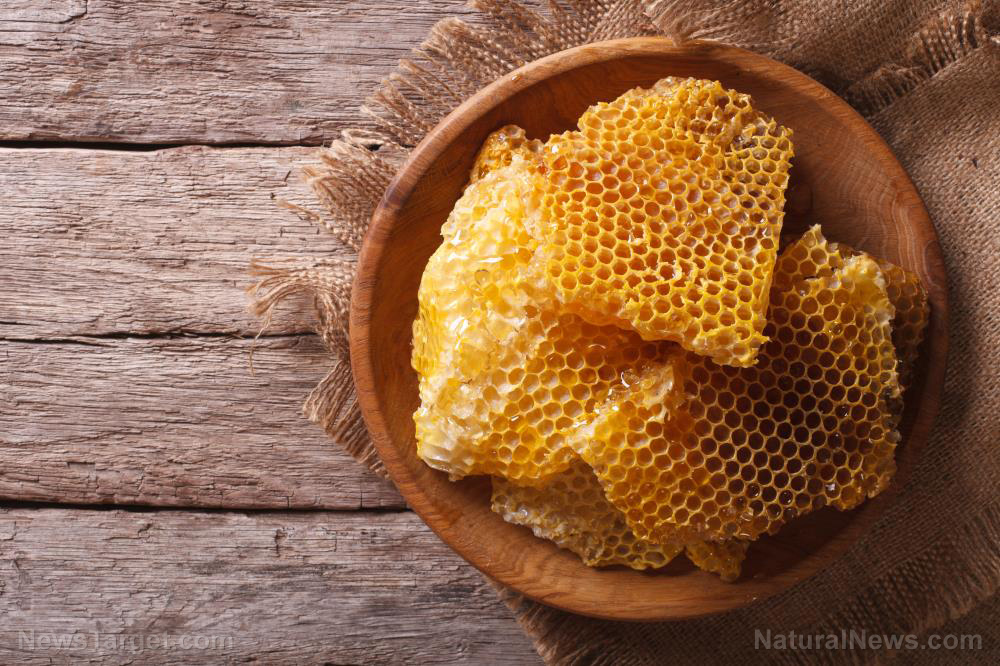
Advertisement
Honeycomb is a waxy substance formed by honey bees to serve as storage for pollen and bee products. It is made of pure beeswax and also houses bee larvae. Honeycomb itself is edible – this series of hexagonal cells can be chewed directly and is a great addition to a person’s diet. While it is best-known for being the source of raw honey, it also contains many nutrients and other substances that offer surprising health benefits.
What can you get from honeycomb?
Honey is not the only useful product bees manufacture in their hives. The beeswax they use to build a honeycomb is said to contain long-chain fatty acids and alcohols that are good for the heart. According to studies, these compounds can lower bad cholesterol and raise good cholesterol levels in the blood.
Honeycomb also contains an abundance of other nutrients, such as carbohydrates, proteins, vitamins, minerals, and antioxidants. These antioxidants come in the form of polyphenols — beneficial plant compounds that also have anti-inflammatory properties. Besides supporting the immune system, antioxidant polyphenols help prevent diseases like heart disease, diabetes, and certain types of cancer.
Beneficial components of honeycomb
The main components of honeycomb are raw honey and beeswax. However, these two are not the only substances in honeycomb that offer health benefits. Here are the things honeycomb components can do.
Raw honey. Honey is a natural product that has been used for food and medicine for more than eight millennia. In ancient Egypt, this naturally sweet substance was revered as a potent drug and was often prescribed to treat various ailments.
There are about 200 active compounds present in honey. These compounds act as antioxidants that fight inflammation and bacterial infections and prevent premature aging. According to studies, honey can also be used to relieve nocturnal coughing and other symptoms of upper respiratory tract infections.
Raw honey contains beneficial enzymes like glucose oxidase, which has antimicrobial properties. These enzymes, however, can be lost or destroyed during processing along with the trace amounts of nutrients present in honey. Therefore, to gain the most out of this product, consume only raw, unprocessed honey.
Propolis. Propolis or “bee glue” is a natural sealant used by bees to seal openings and cracks in their hive. It is made from a combination of beeswax, saliva, and the protective resins of different flowers and leaf buds. Bees use propolis to protect themselves from other insects as well as bad weather.
While propolis is not as common as honey, it was a popular bee product in ancient times. Folk medicine in many countries used propolis for wounds, burns, sore throats, and even stomach ulcers. Propolis is said to have antimicrobial, antioxidant, and anti-inflammatory properties, which make it effective against infections, inflammation, viral infections, and colds.
Bee pollen. Bees are known for collecting pollen and nectar from flowers for food. Back in their hives, bees combine pollen with their saliva and various enzymes to make small granules which the entire colony eats. These granules are rich in nutrients and natural compounds that offer different benefits, depending on their sources.
According to a recent study, bee pollen has anti-inflammatory, antibacterial, antifungal, antiviral, anticancer, antioxidant, and analgesic properties. These properties give bee pollen the ability to accelerate wound healing. The polyphenols in bee pollen can also protect the arteries from atherosclerosis and alleviate the symptoms of menopause.
Royal jelly. Royal jelly is famously associated with longevity. Observations on bee life and behavior suggest that it may be one of the reasons why queen bees live longer (up to five years) than worker bees, whose lifespans do not exceed two months. Royal jelly is secreted by bees to feed to their offspring and their queen, and has a gelatin-like consistency.
According to studies, royal jelly is an effective antibacterial agent against Gram positive bacteria and even antibiotic-resistant bacteria. Royal jelly also has anti-diabetic properties, which enable it to decrease blood glucose and glycosylated hemoglobin levels and increase insulin. In addition, supplementing with royal jelly can increase antioxidant activity in the body and decrease oxidative stress, which can be damaging to cells.
Honeycomb is a nutritious bee product that offers various health benefits. Lower your cholesterol levels and give your body’s antioxidants a boost by avoiding processed honey and adding honeycomb to your diet.
Sources include:
Advertisements







